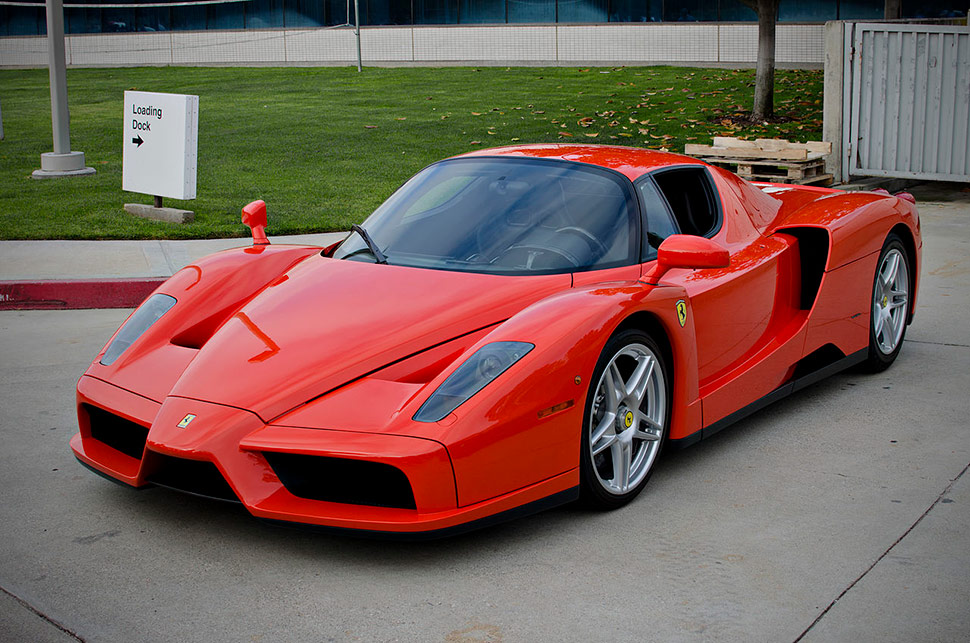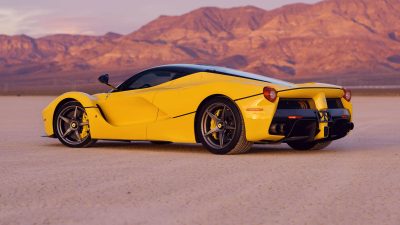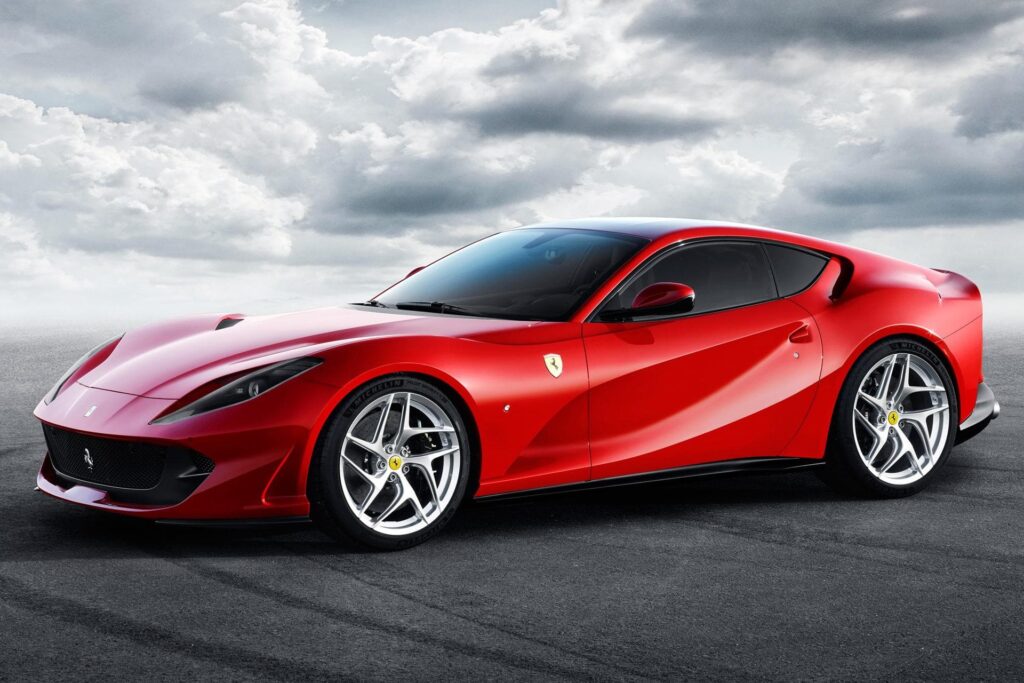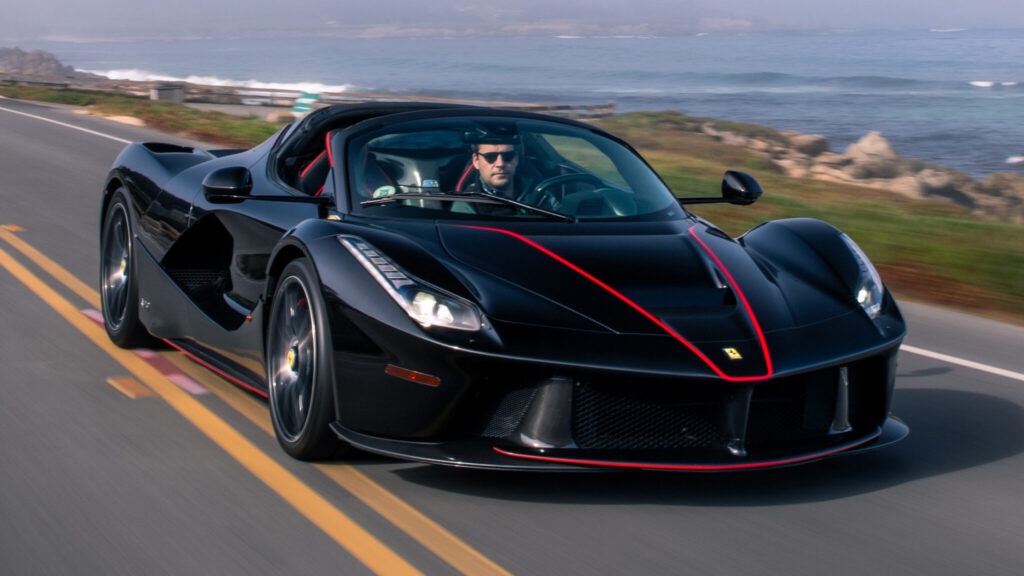Introduction
Ferrari is not just a car manufacturer; it’s a symbol of speed, luxury, and innovation. Founded by Enzo Ferrari in 1939, Ferrari has grown into one of the most iconic and respected brands in the world. Known for its high-performance sports cars, Ferrari has a rich history that includes a strong presence in motorsports, particularly in Formula 1.
This article delves into the history, models, and innovations of Ferrari, highlighting its importance in the automotive industry. Whether you’re a car enthusiast or just curious about this legendary brand, this comprehensive guide will provide you with a deep understanding of what makes Ferrari unique.
History of Ferrari
Early Beginnings
Ferrari’s journey began in 1939 when Enzo Ferrari founded Auto Avio Costruzioni, which later became Ferrari. The company’s first car, the 125 S, was produced in 1947. It featured a 1.5-liter V12 engine, setting the stage for Ferrari’s reputation for high-performance engines.

Growth and Success
Throughout the 1950s and 1960s, Ferrari became synonymous with speed and luxury. The company focused on creating both road cars and racing cars, with notable successes in the Mille Miglia and Le Mans. The introduction of models like the 250 GTO in the 1960s solidified Ferrari’s reputation as a leader in automotive excellence.
Ferrari in Formula 1
Ferrari‘s involvement in Formula 1 began in 1950, making it the only team to have competed in every season since the championship’s inception. With numerous World Championships and legendary drivers like Michael Schumacher, Ferrari has become a dominant force in the sport.
Modern Era
In the modern era, Ferrari continues to innovate, combining cutting-edge technology with its traditional emphasis on speed and style. The company has expanded its lineup to include models that appeal to a broader audience, including the LaFerrari, a hybrid supercar that represents the pinnacle of Ferrari engineering.
Iconic Ferrari Models
Ferrari’s lineup includes some of the most iconic cars in automotive history. Here’s a look at some of the models that have defined the brand.
| Model | Year Introduced | Engine | Top Speed | Notable Features |
|---|---|---|---|---|
| Ferrari 250 GTO | 1962 | 3.0 L V12 | 174 mph | One of the most valuable classic cars in history |
| Ferrari F40 | 1987 | 2.9 L twin-turbo V8 | 201 mph | Celebrated for its raw performance and design |
| Ferrari Enzo | 2002 | 6.0 L V12 | 218 mph | Named after the founder, incorporates F1 technology |
| Ferrari LaFerrari | 2013 | 6.3 L V12 hybrid | 217 mph | Ferrari’s first hybrid, a combination of speed and efficiency |
| Ferrari 488 GTB | 2015 | 3.9 L twin-turbo V8 | 205 mph | Advanced aerodynamics and cutting-edge technology |

Ferrari 250 GTO
The Ferrari 250 GTO is one of the most revered classic cars in the world. Introduced in 1962, it was designed for racing and became a symbol of Ferrari’s engineering prowess. With only 39 units ever produced, the 250 GTO is a rare and valuable collector’s item, with some models fetching over $70 million at auctions.
Ferrari F40
The Ferrari F40, introduced in 1987, was built to celebrate Ferrari’s 40th anniversary. Known for its lightweight construction and raw performance, the F40 is considered one of the greatest supercars of all time. Its twin-turbo V8 engine and minimalist design make it a favorite among car enthusiasts.
Ferrari Enzo
Named after the company’s founder, the Ferrari Enzo was introduced in 2002. It incorporates Formula 1 technology, including a carbon-fiber body and advanced aerodynamics. With a top speed of 218 mph, the Enzo was a limited-production supercar, with only 400 units produced.
Ferrari LaFerrari
The LaFerrari represents Ferrari’s entry into hybrid technology. Introduced in 2013, it combines a 6.3-liter V12 engine with an electric motor, delivering a total of 950 horsepower. The LaFerrari is not only a technological marvel but also a statement of Ferrari’s commitment to innovation and sustainability.
Ferrari 488 GTB
The Ferrari 488 GTB, introduced in 2015, is a testament to Ferrari’s continuous pursuit of perfection. With a 3.9-liter twin-turbo V8 engine, it offers blistering speed and precise handling. The 488 GTB’s design and performance make it one of the most sought-after modern Ferraris.
Ferrari’s Innovations
Ferrari has always been at the forefront of automotive innovation. Here are some of the key innovations that have set Ferrari apart from its competitors.

Engine Technology
Ferrari’s V12 engines are legendary for their performance and sound. Over the years, Ferrari has continued to innovate with turbocharged V8 engines and hybrid powertrains, ensuring that their cars remain powerful and efficient.
Aerodynamics
Aerodynamics plays a crucial role in Ferrari’s design philosophy. From the smooth curves of the 250 GTO to the advanced active aerodynamics of the LaFerrari, Ferrari’s focus on reducing drag and increasing downforce has led to significant improvements in performance.
Lightweight Construction
Ferrari’s use of lightweight materials, such as carbon fiber and aluminum, has allowed them to build cars that are not only fast but also agile. The emphasis on weight reduction is evident in models like the Ferrari F40 and LaFerrari, where every component is designed with performance in mind.
Advanced Electronics
Ferrari has incorporated advanced electronics into their cars, including traction control, electronic stability control, and advanced driver assistance systems. These technologies ensure that Ferrari’s cars are not only fast but also safe and easy to control, even at high speeds.
Ferrari’s Presence in Motorsports
Ferrari’s success in motorsports is a significant part of its legacy. The company’s involvement in Formula 1 and other racing series has not only contributed to its reputation but also led to technological advancements that have trickled down to their road cars.
Formula 1 Dominance
Ferrari is the most successful team in Formula 1 history, with numerous World Championships and Grand Prix victories. The team’s dedication to excellence and innovation has made them a formidable force in the sport. Legendary drivers like Michael Schumacher and Niki Lauda have contributed to Ferrari’s dominance in Formula 1.
Le Mans and Endurance Racing
Ferrari has also enjoyed success in endurance racing, particularly at the 24 Hours of Le Mans. The Ferrari 250 GTO and 330 P4 are among the models that have achieved victory at this prestigious event, showcasing Ferrari’s ability to build cars that can perform under the most demanding conditions.
Influence on Road Cars
Ferrari’s experience in motorsports has directly influenced their road cars. Technologies developed for racing, such as advanced aerodynamics and lightweight construction, have been integrated into Ferrari’s production models, ensuring that their cars offer the highest levels of performance.
Ferrari’s Global Impact
Ferrari’s influence extends far beyond the automotive industry. The brand has become a symbol of luxury, success, and Italian craftsmanship. Ferrari’s impact can be seen in various aspects of culture, from fashion to entertainment.
Ferrari in Pop Culture
Ferrari has made numerous appearances in movies, television shows, and music videos. Iconic models like the Ferrari Testarossa in “Miami Vice” and the Ferrari 250 GT California in “Ferris Bueller’s Day Off” have cemented Ferrari’s place in pop culture. The brand is often associated with wealth, success, and the thrill of speed.

Ferrari Merchandise and Branding
Ferrari’s brand extends beyond cars, with a wide range of merchandise including clothing, accessories, and even theme parks. The Ferrari brand is recognized worldwide, and its merchandise is sought after by fans and collectors alike.
Ferrari’s Environmental Initiatives
In recent years, Ferrari has taken steps to address environmental concerns. The introduction of hybrid models like the LaFerrari and the company’s commitment to reducing emissions demonstrate Ferrari’s efforts to align with global sustainability goals while maintaining their performance standards.
The Future of Ferrari
As Ferrari looks to the future, the company continues to innovate while staying true to its heritage. The introduction of electric and hybrid models, along with advancements in autonomous driving technology, suggests that Ferrari is preparing for a new era in the automotive industry.
Electric and Hybrid Models
Ferrari has already made strides in hybrid technology with the LaFerrari, and the company has announced plans to introduce more hybrid and fully electric models in the coming years. These developments reflect Ferrari’s commitment to staying at the cutting edge of automotive technology while addressing environmental concerns.
Continued Success in Motorsports
Ferrari’s involvement in motorsports is expected to continue, with the team focusing on maintaining its dominance in Formula 1 and other racing series. The lessons learned on the track will likely influence Ferrari’s future road cars, ensuring that the brand remains synonymous with speed and performance.
Expanding the Brand
Ferrari’s expansion into lifestyle products and experiences, such as the Ferrari World theme park in Abu Dhabi, indicates that the company is looking to broaden its appeal beyond just automotive enthusiasts. This strategy will likely help Ferrari maintain its status as a global luxury brand.
Conclusion
Ferrari is more than just a car manufacturer; it’s a symbol of passion, innovation, and excellence. From its early beginnings to its current status as a global icon, Ferrari has consistently set the standard for what a sports car should be. The company’s commitment to performance, design, and technology has made it a leader in the automotive industry.
Whether you’re drawn to Ferrari’s rich history, its success in motorsports, or its innovative road cars, there’s no denying the impact that Ferrari has had on the world. As the company continues to evolve and embrace new technologies, Ferrari’s legacy is sure to endure for generations to come.
With its unique blend of speed, luxury, and Italian craftsmanship, Ferrari will always be a dream for car enthusiasts and a symbol of excellence in the automotive world.

